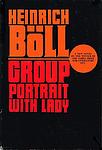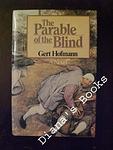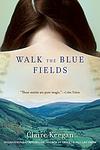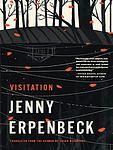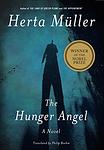The Greatest German "Fiction, Social & Cultural Fiction" Books Since 1970
Click to learn how this list is calculated.
This list represents a comprehensive and trusted collection of the greatest books. Developed through a specialized algorithm, it brings together 300 'best of' book lists to form a definitive guide to the world's most acclaimed books. For those interested in how these books are chosen, additional details can be found on the rankings page.
Genres
Social & Cultural Fiction is a literary category that encompasses novels and stories that delve into the complexities of society and culture, exploring themes such as class, race, gender, and identity within specific social contexts. These narratives often provide a lens through which readers can examine the intricacies of human relationships and the impact of cultural norms and societal structures on individuals and communities. By offering a fictional yet reflective portrayal of real-world social dynamics, this genre invites readers to gain a deeper understanding of the diverse experiences that shape our world. Authors in this category frequently use their characters and settings to comment on contemporary issues, challenge prevailing ideologies, and provoke thought about the possibility of social change, making Social & Cultural Fiction a powerful tool for empathy and a mirror for the ever-evolving human condition.
Countries
Date Range
Reading Statistics
Click the button below to see how many of these books you've read!
Download
If you're interested in downloading this list as a CSV file for use in a spreadsheet application, you can easily do so by clicking the button below. Please note that to ensure a manageable file size and faster download, the CSV will include details for only the first 500 books.
Download-
1. Anniversaries by Uwe Johnson
"Anniversaries" is a novel that provides a detailed account of a year in the life of Gesine Cresspahl, a German immigrant living in New York City with her young daughter. The narrative unfolds through daily entries, spanning from August 1967 to August 1968, intertwining the protagonist's present-day experiences with her traumatic past in Nazi and post-war East Germany. The novel explores themes of memory, identity, displacement, and the complexities of history, offering a nuanced perspective on the immigrant experience and the lasting impacts of historical trauma.
-
2. The Emigrants by Winfried Georg Sebald
"The Emigrants" is a novel that explores the experiences and memories of four different emigrants, each with a unique and complex history. The narrative primarily focuses on the psychological impact of displacement and the haunting nature of the past. The author delves deep into their lives, revealing their struggles with identity, loss, and the persistent influence of their roots. The narrative is interwoven with historical events, photographs, and other documents, creating a rich tapestry that blurs the line between fact and fiction.
-
3. Group Portrait with Lady by Heinrich Böll
This novel delves into the life of Leni Pfeiffer, a resilient woman surviving in post-World War II Germany. Through the eyes of an unnamed narrator, the story unravels Leni's life, her relationships, and the socio-political climate of the time. The narrative is presented as a group portrait, with each chapter focusing on different characters who have been part of Leni's life, highlighting the hardships and resilience of everyday people in the aftermath of war.
-
4. Patterns of Childhood by Christa Wolf
"Patterns of Childhood" is a semi-autobiographical novel that explores a woman's struggle to reconcile her past as a member of the Hitler Youth in Nazi Germany with her present as a writer in East Germany. The protagonist uses her memories, dreams, and conversations with her brother to confront her guilt and shame over her involvement in the Nazi regime. The narrative shifts between past and present, creating a complex and layered exploration of guilt, memory, and the process of coming to terms with a traumatic past.
-
5. The Young Man by Botho Strauß
"The Young Man" is a philosophical novel that explores the transformation of a young man from a passive observer to an active participant in life. The protagonist, initially a detached observer of his own life and the world around him, is forced to confront his own existence and identity when he falls in love. The narrative delves into his introspective journey, his struggle with societal norms, his search for meaning and purpose, and his ultimate acceptance of his own individuality and humanity.
-
6. The Parable of the Blind by Gert Hofmann
"The Parable of the Blind" is a darkly comedic novel that follows six blind men who are hired to pose as models for a famous painter's depiction of a biblical parable. As they journey to the painter's studio, they struggle with their dependence on each other and the outside world, grappling with the limitations and challenges of their blindness. The narrative explores themes of human vulnerability, the nature of perception, and the absurdity of existence.
-
7. The Collected Stories of Heinrich Boll by Heinrich Böll
This collection of stories provides a comprehensive view of post-World War II Germany and its people through the lens of a renowned author. The narratives, filled with irony, humor, and profound compassion, delve into the lives of ordinary individuals, exploring themes of war, poverty, and moral dilemmas. The author's keen observation and poignant storytelling offer a rich portrayal of human nature and the complexities of society in a changing world.
-
8. The Blind Side of the Heart by Julia Franck
"The Blind Side of the Heart" is a historical novel that explores the life of a German woman before, during, and after World War II. The story begins with her abandonment of her young son at a railway station, then flashes back to her own childhood, her experiences during the war, and her tumultuous relationships. The narrative provides a deep and unflinching look at the psychological effects of war and the struggle for survival, as well as the profound impact of trauma and loss.
-
9. The Flounder by Günter Grass
The book is a rich tapestry of historical fiction and magical realism, weaving together the lives of a talking fish, a series of women cooks, and the men in their lives over several centuries. It explores themes of feminism, power, and the evolution of culinary arts, with the titular flounder serving as a guide and witness to the unfolding human drama. The narrative spans from the Stone Age to the modern era, reflecting on the changing roles and relationships between men and women, as well as the impact of these dynamics on culture and society. The novel is a blend of myth, satire, and allegory, presenting a unique perspective on the history of humanity through the lens of food and gender politics.
-
10. Visitation by Jenny Erpenbeck
"Visitation" is a novel that explores the history of a house located by a lake in Brandenburg, Germany, and the various inhabitants it has seen over the centuries. The narrative spans from the early 20th century to the post-war period, encompassing the tumultuous events of the Weimar Republic, the Third Reich, and the German Democratic Republic. Each chapter is dedicated to a different resident's story, including a Jewish family, an architect, a young girl, and a Soviet officer, among others, creating a tapestry of human experiences and emotions shaped by the historical and political upheavals of the time.
-
11. The Fox Was Ever The Hunter by Herta Müller
This novel transports readers to the waning days of communist Romania, weaving a tense narrative of life under a repressive regime. Through the eyes of a young schoolteacher and her circle of friends, the story reveals a world where trust is eroded by surveillance and betrayal, and daily existence is suffused with fear and suspicion. The narrative is rich with poetic imagery and symbolism, capturing the oppressive atmosphere of the time. As the characters navigate their lives, their stories become a powerful testament to the human spirit's resilience against the backdrop of political tyranny.
-
12. The Hunger Angel by Herta Müller
"The Hunger Angel" is a poignant novel that explores the harrowing experiences of a young man deported to a Soviet labor camp after World War II. The narrative delves into the psychological and physical toll of life in the camp, where the protagonist grapples with extreme hunger, harsh conditions, and the struggle to maintain a sense of identity and humanity. Through lyrical and evocative prose, the book captures the intense emotions and survival mechanisms of those ensnared in the brutal realities of historical political oppression.
Reading Statistics
Click the button below to see how many of these books you've read!
Download
If you're interested in downloading this list as a CSV file for use in a spreadsheet application, you can easily do so by clicking the button below. Please note that to ensure a manageable file size and faster download, the CSV will include details for only the first 500 books.
Download

